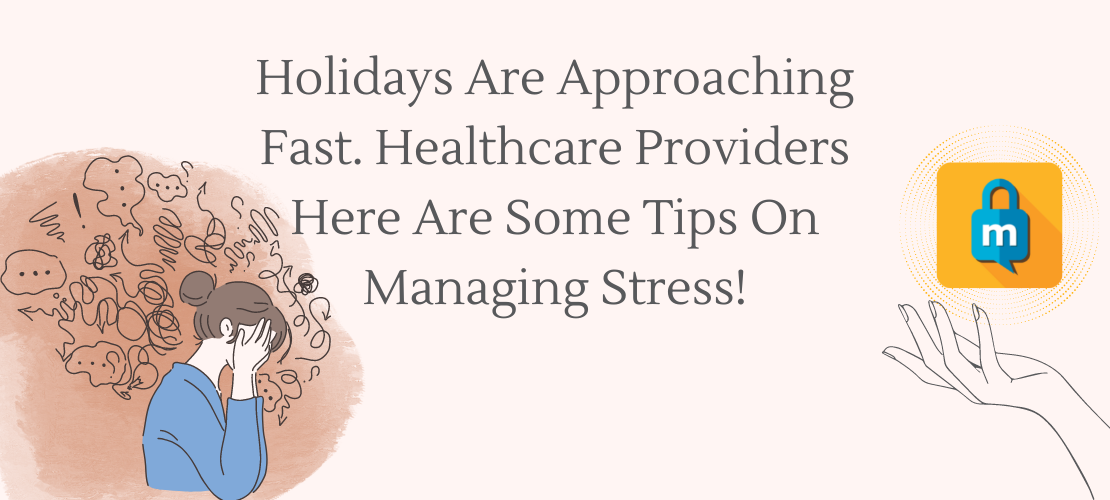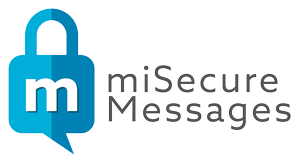
Holidays Are Approaching Fast. Healthcare Providers Here Are Some Tips On Managing Stress!
Healthcare providers are always highly exposed to stressful events, and depending on the department and positions healthcare providers are in, some may face more or less patient volume. Healthcare providers' health is just as important as patient health. Communication can make or break a relationship with others and oneself, and within healthcare can become taxing and dangerous. How one speaks to themselves affects them mentally, emotionally, and eventually physically. Regulating stress can become complicated when healthcare providers are not careful. Stress can be healthy; however, everyone's tolerance to stress levels differs, and they should be aware of their capacity. Discerning how much stress one can handle and setting a limit is essential in understanding how many tasks one can take. Hospitals investing in an encrypted software app that uses secure communication to unify different departments will see higher job satisfaction and minimize miscommunication.
Healthcare providers have many psychological challenges, combined with long hours, miscommunication, decreased sleep, and fatigue, making self-monitoring difficult. Having peer monitoring is helpful when self-monitoring is failing. Holly Avey et al.'s research brought interesting insights regarding stress counseling, "Health care providers' training, perceptions, and practices regarding stress and health outcomes." Avey et al. stated how the personal practice of stress could impact stress counseling with patients. Stress is a significant contributor to patient care. Healthcare providers are either inexperienced with stress counseling or have minimal experience, "it may require the personal practice of stress reduction techniques to increase the frequency with which providers will actually provide such counseling" (Avey et al., p. 842). Although healthcare providers are not therapists, some patients may not understand that stress contributes to physical symptoms. Healthcare providers need to know how to manage stress to deliver the same quality care to their patients. Here are some helpful management tips for hospitals to implement today:
- Have clear, compassionate communication. Compliments can motivate and moderate healthcare providers' stress.
- Encourage self and peer monitoring about fulfilling basic needs. Supporting one another can raise social relations too.
- Regular breaks.
- Discourage isolation and establish a safe space for healthcare providers.
- Practice mindfulness.
- Adopt healthy habits.
Practicing stress management can help healthcare providers lower their pressure. After all, taking good care of one's well-being allows healthcare providers to take better care of patients. When hospitals have a secure medical messaging app, communication among peers can be elevated and establish a firmer social relations. Improving the support system healthcare providers can have; however, healthcare providers need to be wary of secondhand stress from giving a shoulder to stressed-out colleagues. One of the solutions to relieving stress is eating healthy and exercising; healthcare providers under immense pressure may be unable to monitor food intake or amount of exercise due to time constraints and pressure. That is why connecting with family, and friends will help keep healthcare providers on track with what they do outside of work. Healthcare providers need to advocate for themselves as they would for patients, which is keeping away from unhealthy choices (smoking, over intake of alcohol consumption, etc.) as a coping mechanism. Now is the time to prepare for stress management after equipping the tips from today's blog.

